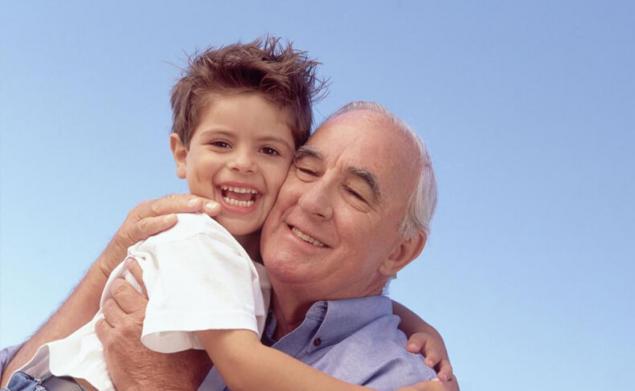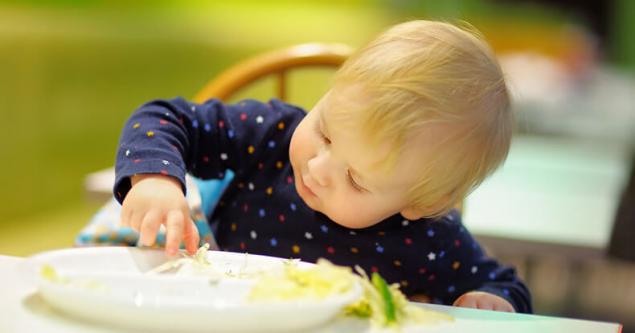273
♪ ♪
It is always easier for us to allow something to our child than to find a way to properly prohibit it. Why? One does not want to put pressure on the baby with his authority, the other adheres to the principles of “freedom to the child in everything!”, the third does not want to become a tyrant, the fourth is simply lazy to forbid and explain.
Does the child need a ban at all?
14 things that should not be forbidden to a child – consider alternatives
Of course, a child needs certain boundaries and boundaries. But the constant “cannot” that the child hears from us, tired, nervous and always busy is the formation of complexes and tightness, the appearance of fears and feelings of guilt, a lack of new knowledge, etc.
That is, the prohibitions must be correct!

What can not be forbidden to the child categorically?
1. Eat your own food.
Of course, it is much easier to quickly feed porridge from a spoon to a child, saving yourself time, and at the same time, powder for washing “killed” T-shirts and sweatshirts. But thereby we deprive the child of the first step to independence - after all, to deliver a spoon to the mouth without dropping its contents, this is a responsible process and requires maximum perseverance. And when the time comes for kindergarten, you do not have to follow the “evil teacher” who shoves lunch into your incompetent baby. Because he's already eating himself! Like a little hero. Do not waste time on the first adult steps of your child - this will simplify the process of upbringing in the coming years.
2. Helping mom and dad.
"Don't touch it, you'll drop it!" or "You can't! You will spill it!, the mother shouts, and after a while complains to her friends that the child does not want to do anything. Do not deprive the child of the opportunity to help you. Helping you, he feels like an adult and needed. It’s okay if after cleaning the child you have to wash the kitchen 2 times longer – but he helped the mother. Set aside a baby kit for cleaning - let him grow up. He wants to take the dishes to the sink - give one that is not a pity to break. He wants to help you with bags - give him a bag of loaf. Do not refuse the baby – all good habits should be grafted with “young nails”.
3. Painting.
Do not take away from the crumbs the possibility of self-expression. Paints develop creativity, fine motor skills, imagination, relieve stress, calm the nervous system, increase self-esteem, etc. Buy the baby non-toxic paints, put on him an old T-shirt (or apron), put on the floor (on a large table) gluten and let the baby express himself “to the fullest”. Wants to paint on the walls? Attach a couple of large sheets of Watman over the wallpaper - let him draw. You can even put a whole wall under these pranks so that there is somewhere to walk.
4. Get naked in the house.
Kids tend to throw off excess clothes, run barefoot or even naked. It's a natural desire. Don’t shout “get dressed immediately!” (unless you have bare concrete on the floor). At normal room temperature, the baby can completely painlessly spend 15-20 minutes barefoot (this is even useful).
5. Express your emotions.
That is, jump/run, squeal and have fun, scream, etc. In short, being a kid. It is clear that in the clinic or at a party, you should observe the rules of decency, but at home let the baby be himself. For him, this is a way to throw out energy, relieve stress, relax. As the saying goes, “Do not interfere with the Bayanist, he plays as he can.”
6. Climb on the street in the bars or sports complexes.
You do not need to pull the baby by the sleeve and with shouts “don’t get in, it is dangerous” to drag him into the sandbox. Yes, dangerous. But this is what parents need to explain the safety rules, show how to go down / climb, hedge below, so that the crumb does not fall. It is better for your child to immediately learn to control his body (in your presence), than then he will climb on the bar without you (and without experience).
7. Playing with water.
Of course, the baby's going to flood. It'll wet from top to toe. But how much happiness will be in his eyes, and what an emotional discharge for him! Do not deprive the crumb of such pleasure. Set aside for him a zone within which you can splash from the heart, splash, etc. Give different containers (drinks, pots, spoons, plastic cups).
8. Spank in puddles.
Meadows are a real source of happiness. For all children without exception and even for some adults. Buy a crumb of bright boots and let go in "free swimming". Positive emotions are the key to mental health.
9. Touch beating things.
Every child has a curious mind. He just needs to touch, consider, taste, etc. Do not rush to take away a cup or statuette from his hands. Just explain that this thing is very dear to you, and you need to handle it carefully - it is not intended for games, but you can hold and consider very much. If the thing is broken, do not scream or scare the baby. Say “luckily!” and together with the baby collect the fragments (let him hold the sheep while you sweep them away).
10. To have an opinion.
Mom – she, of course, knows better what t-shirt will suit these shorts, how to arrange toys, and in what order to eat dishes from the festive table. But your baby is already a full-fledged personality. He has his own desires, thoughts and opinions. Listen to the baby. “I said so!” and “Because!” are not arguments for a child. Convince him that you are right, or have the courage to agree with his opinion.
11. Playing with dishes.
Again, everything dangerous and expensive is hidden higher and deeper, and shoulder blades, spoons, pots, containers are not just dishes, but developing materials for the scrub – let him play! If you are not sorry for cereals, then you do not need to deprive the baby of this pleasure, because it is so pleasant to pour pasta with beans and buckwheat from a pot into a pan.
12. Sleep with the light.
Children, especially from 3-4 years old, are afraid to sleep in the dark. This is normal: the psychological "break" from the mother is often accompanied by nightmares. Do not overdo it, accustoming the child to sleep in a separate bed or room. If the baby is afraid of the dark, set a night light.
13. Don't finish.
Do not torture a child with cereals and soups that he does not want. Lunch should not be a torment, but a pleasure. Only then will it be beneficial. And that the appetite of the crumbs was higher, arrange him less snacks between meals, and strictly observe the diet.
14. Fantasy.
You know your child better than anyone. Learn to distinguish “fiction” (fantasy) from explicit and intentional lies. Fiction is a game and a child’s own universe. Lying is an unacceptable phenomenon and a sign of distrust of your child.

11 Things to Ban Your Child In Any Case
With constant use by parents the words "not" or "not" The child gets used to the prohibitions. Automatic. That is, over time, the reaction to prohibitions will be completely different – the child will simply stop reacting to them.
True, there are other extremes. For example, when a mother is so intimidating that the child’s fear of doing something wrong turns into a phobia. Therefore It is reasonable to divide prohibitions into categorical (absolute), temporary and depending on the circumstances.
If the second and third mothers determine, based on the situation, then absolute prohibitions can be allocated to a certain list.
So it's absolutely impossible...
1. Beating others and fighting.
Cruelty should be stopped at the root, necessarily explaining to the child why it is impossible. If the baby is hyperactive, and aggressive towards peers - teach him to "let off steam" civilized. For example, to draw, beat a boxing pear, dance, etc.
2. To hurt our lesser brothers.
Teach your child to help and care for animals. Get a pet (even a hamster), take the child on an excursion to the stable and introduce them to horses, visit an animal shelter and give the crumb a personal example (a lesson in mercy).
3. Take other people's things.
This axiom the child must absorb from the diaper. Appropriating other people's toys, climbing on parental things or biting candy in the store - it is impossible. No need to scold - you need to explain how such actions end (without embellishment, frankly). If it doesn’t help, ask someone you know to play the role of a police officer.
4. Not to say hello.
Not answering a greeting or saying goodbye is impolite. From the diaper, teach the baby to say hello, say “thank you and please”, apologize. The most effective method is a personal example.
5. To run away from my mom.
One of the key "no." The baby should understand that you can not leave your parents anywhere and before leaving (to the sandbox, for example, or to the next counter in the supermarket), you need to tell your mother about this.
6. Get on the window sills.
Even if you have plastic windows and all safety measures are taken. This prohibition is categorical.
7. Play on the roadway.
This is a rule that the baby should know. The ideal option is to study it in pictures and fix the effect with useful cartoons. But even in this case, the option of “walk, I will look out of the window” is irresponsible. According to the law of meanness, the ball from the playground always flies to the road, and you can simply not have time to protect the child.
8. Throwing things off the balcony.
It does not matter whether it is toys, water balls, stones or something else. Anything that poses a danger to others is prohibited. Not to mention, it's just uncultured.
9. Push fingers or objects into sockets.
Just stubs and disguises! Explain to your child why it is dangerous.
10. Violate morals.
That is, throwing at other people with various objects, spitting, jumping on puddles if someone walks near, swearing, etc.
11. Play with fire (matches, lighters, etc.).
This topic is easy to reveal to the baby - today a lot of useful materials on this topic, designed specifically for children in the form of cartoons.

Prohibitions for children – rules for parents
So that the ban was learned by the child and did not meet resistance, resentment, protest, you should learn a number of rules of prohibitions:
Author: Natalie Crete
P.S. And remember, just by changing our consumption – together we change the world!
Join us on Facebook, VKontakte, Odnoklassniki
Source: www.colady.ru/chto-i-kak-nuzhno-zapreshhat-rebenku-a-chto-zapreshhat-nelzya.html#1
Does the child need a ban at all?
14 things that should not be forbidden to a child – consider alternatives
Of course, a child needs certain boundaries and boundaries. But the constant “cannot” that the child hears from us, tired, nervous and always busy is the formation of complexes and tightness, the appearance of fears and feelings of guilt, a lack of new knowledge, etc.
That is, the prohibitions must be correct!

What can not be forbidden to the child categorically?
1. Eat your own food.
Of course, it is much easier to quickly feed porridge from a spoon to a child, saving yourself time, and at the same time, powder for washing “killed” T-shirts and sweatshirts. But thereby we deprive the child of the first step to independence - after all, to deliver a spoon to the mouth without dropping its contents, this is a responsible process and requires maximum perseverance. And when the time comes for kindergarten, you do not have to follow the “evil teacher” who shoves lunch into your incompetent baby. Because he's already eating himself! Like a little hero. Do not waste time on the first adult steps of your child - this will simplify the process of upbringing in the coming years.
2. Helping mom and dad.
"Don't touch it, you'll drop it!" or "You can't! You will spill it!, the mother shouts, and after a while complains to her friends that the child does not want to do anything. Do not deprive the child of the opportunity to help you. Helping you, he feels like an adult and needed. It’s okay if after cleaning the child you have to wash the kitchen 2 times longer – but he helped the mother. Set aside a baby kit for cleaning - let him grow up. He wants to take the dishes to the sink - give one that is not a pity to break. He wants to help you with bags - give him a bag of loaf. Do not refuse the baby – all good habits should be grafted with “young nails”.
3. Painting.
Do not take away from the crumbs the possibility of self-expression. Paints develop creativity, fine motor skills, imagination, relieve stress, calm the nervous system, increase self-esteem, etc. Buy the baby non-toxic paints, put on him an old T-shirt (or apron), put on the floor (on a large table) gluten and let the baby express himself “to the fullest”. Wants to paint on the walls? Attach a couple of large sheets of Watman over the wallpaper - let him draw. You can even put a whole wall under these pranks so that there is somewhere to walk.
4. Get naked in the house.
Kids tend to throw off excess clothes, run barefoot or even naked. It's a natural desire. Don’t shout “get dressed immediately!” (unless you have bare concrete on the floor). At normal room temperature, the baby can completely painlessly spend 15-20 minutes barefoot (this is even useful).
5. Express your emotions.
That is, jump/run, squeal and have fun, scream, etc. In short, being a kid. It is clear that in the clinic or at a party, you should observe the rules of decency, but at home let the baby be himself. For him, this is a way to throw out energy, relieve stress, relax. As the saying goes, “Do not interfere with the Bayanist, he plays as he can.”
6. Climb on the street in the bars or sports complexes.
You do not need to pull the baby by the sleeve and with shouts “don’t get in, it is dangerous” to drag him into the sandbox. Yes, dangerous. But this is what parents need to explain the safety rules, show how to go down / climb, hedge below, so that the crumb does not fall. It is better for your child to immediately learn to control his body (in your presence), than then he will climb on the bar without you (and without experience).
7. Playing with water.
Of course, the baby's going to flood. It'll wet from top to toe. But how much happiness will be in his eyes, and what an emotional discharge for him! Do not deprive the crumb of such pleasure. Set aside for him a zone within which you can splash from the heart, splash, etc. Give different containers (drinks, pots, spoons, plastic cups).
8. Spank in puddles.
Meadows are a real source of happiness. For all children without exception and even for some adults. Buy a crumb of bright boots and let go in "free swimming". Positive emotions are the key to mental health.
9. Touch beating things.
Every child has a curious mind. He just needs to touch, consider, taste, etc. Do not rush to take away a cup or statuette from his hands. Just explain that this thing is very dear to you, and you need to handle it carefully - it is not intended for games, but you can hold and consider very much. If the thing is broken, do not scream or scare the baby. Say “luckily!” and together with the baby collect the fragments (let him hold the sheep while you sweep them away).
10. To have an opinion.
Mom – she, of course, knows better what t-shirt will suit these shorts, how to arrange toys, and in what order to eat dishes from the festive table. But your baby is already a full-fledged personality. He has his own desires, thoughts and opinions. Listen to the baby. “I said so!” and “Because!” are not arguments for a child. Convince him that you are right, or have the courage to agree with his opinion.
11. Playing with dishes.
Again, everything dangerous and expensive is hidden higher and deeper, and shoulder blades, spoons, pots, containers are not just dishes, but developing materials for the scrub – let him play! If you are not sorry for cereals, then you do not need to deprive the baby of this pleasure, because it is so pleasant to pour pasta with beans and buckwheat from a pot into a pan.
12. Sleep with the light.
Children, especially from 3-4 years old, are afraid to sleep in the dark. This is normal: the psychological "break" from the mother is often accompanied by nightmares. Do not overdo it, accustoming the child to sleep in a separate bed or room. If the baby is afraid of the dark, set a night light.
13. Don't finish.
Do not torture a child with cereals and soups that he does not want. Lunch should not be a torment, but a pleasure. Only then will it be beneficial. And that the appetite of the crumbs was higher, arrange him less snacks between meals, and strictly observe the diet.
14. Fantasy.
You know your child better than anyone. Learn to distinguish “fiction” (fantasy) from explicit and intentional lies. Fiction is a game and a child’s own universe. Lying is an unacceptable phenomenon and a sign of distrust of your child.

11 Things to Ban Your Child In Any Case
With constant use by parents the words "not" or "not" The child gets used to the prohibitions. Automatic. That is, over time, the reaction to prohibitions will be completely different – the child will simply stop reacting to them.
True, there are other extremes. For example, when a mother is so intimidating that the child’s fear of doing something wrong turns into a phobia. Therefore It is reasonable to divide prohibitions into categorical (absolute), temporary and depending on the circumstances.
If the second and third mothers determine, based on the situation, then absolute prohibitions can be allocated to a certain list.
So it's absolutely impossible...
1. Beating others and fighting.
Cruelty should be stopped at the root, necessarily explaining to the child why it is impossible. If the baby is hyperactive, and aggressive towards peers - teach him to "let off steam" civilized. For example, to draw, beat a boxing pear, dance, etc.
2. To hurt our lesser brothers.
Teach your child to help and care for animals. Get a pet (even a hamster), take the child on an excursion to the stable and introduce them to horses, visit an animal shelter and give the crumb a personal example (a lesson in mercy).
3. Take other people's things.
This axiom the child must absorb from the diaper. Appropriating other people's toys, climbing on parental things or biting candy in the store - it is impossible. No need to scold - you need to explain how such actions end (without embellishment, frankly). If it doesn’t help, ask someone you know to play the role of a police officer.
4. Not to say hello.
Not answering a greeting or saying goodbye is impolite. From the diaper, teach the baby to say hello, say “thank you and please”, apologize. The most effective method is a personal example.
5. To run away from my mom.
One of the key "no." The baby should understand that you can not leave your parents anywhere and before leaving (to the sandbox, for example, or to the next counter in the supermarket), you need to tell your mother about this.
6. Get on the window sills.
Even if you have plastic windows and all safety measures are taken. This prohibition is categorical.
7. Play on the roadway.
This is a rule that the baby should know. The ideal option is to study it in pictures and fix the effect with useful cartoons. But even in this case, the option of “walk, I will look out of the window” is irresponsible. According to the law of meanness, the ball from the playground always flies to the road, and you can simply not have time to protect the child.
8. Throwing things off the balcony.
It does not matter whether it is toys, water balls, stones or something else. Anything that poses a danger to others is prohibited. Not to mention, it's just uncultured.
9. Push fingers or objects into sockets.
Just stubs and disguises! Explain to your child why it is dangerous.
10. Violate morals.
That is, throwing at other people with various objects, spitting, jumping on puddles if someone walks near, swearing, etc.
11. Play with fire (matches, lighters, etc.).
This topic is easy to reveal to the baby - today a lot of useful materials on this topic, designed specifically for children in the form of cartoons.

Prohibitions for children – rules for parents
So that the ban was learned by the child and did not meet resistance, resentment, protest, you should learn a number of rules of prohibitions:
- Do not choose a judgmental tone for prohibition, do not shame or blame the child.. Prohibition is a border, not a reason to accuse the child that he violated it.
- Always and in an accessible way explain the reasons for the ban. You can't just ban it. It is necessary to explain why it is impossible, what is dangerous, what may be the consequences. Without motivation, prohibitions do not work. Formulate the prohibitions clearly and clearly - without long lectures and reading morals. And even better, through the game, so that the material is better absorbed.
- Don’t break boundaries (especially when it comes to absolute prohibitions). You can't ban your child from taking mom's clothes yesterday and today, and tomorrow you can let him stay out of your way while you're chatting with your girlfriend. "No" should be categorical.
- Restrictions should not be universal.. A minimum of absolute limitations is enough. Look for compromises and be smarter. Do not “stop being capricious, people are here, so it is impossible!”, but “Son, let’s go, choose a gift for Dad – he has a birthday soon” (a cat toy, a shoulder blade for a pan, etc.).
- Prohibitions should not go against the needs of the baby. You can not forbid him to jump and fool around, fantasize, burrow up to his ears in the sand, slap on puddles, build houses under the table, laugh loudly, etc. Because he is a child, and such states are the norm for him.
- Taking care of the safety of the child, do not overdo it.. It is better to protect as much as possible all the ways of the baby’s movement in the apartment (stubs, soft overlays on corners, dangerous objects removed to the top, etc.), than every 5 minutes to shout “you can’t”.
- The ban should come not only from you, but from the whole family.. If Mom forbids it, Dad shouldn't allow it. Reconcile your requirements among all family members.
- Read smart and useful books more often.. Watch specially created to expand the horizons of cartoons. There is no shortage of them today. Moralisms from the mother tire, but the plot of the cartoon (book), as “Vasya played with matches” will be remembered for a long time.
- Be an example to your child.. Why say that you can not walk around the bedroom in shoes, if you allow yourself to jump (even on tiptoes) in boots for a purse or keys.
- Offer the child a choice.This will not only save you from the need to press your authority, but also increase the self-esteem of the baby. Don't want to wear pajamas? Offer a choice of green or yellow pajamas. Don't want to swim? Let him choose the toys he takes with him to the bath.
Author: Natalie Crete
P.S. And remember, just by changing our consumption – together we change the world!
Join us on Facebook, VKontakte, Odnoklassniki
Source: www.colady.ru/chto-i-kak-nuzhno-zapreshhat-rebenku-a-chto-zapreshhat-nelzya.html#1
























